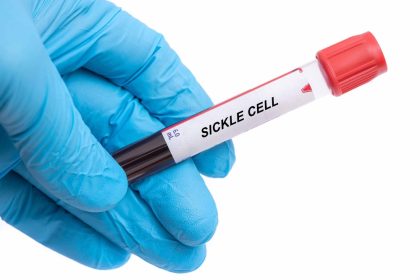If you’ve been focusing all your health anxiety on breast cancer screenings, there’s something else you need to add to your radar. A new study from Brigham and Women’s Hospital has unveiled a game-changing approach to predicting heart disease in women, and it all comes down to three simple blood tests that could literally save your life.
Why this matters more than you think
Here’s a shocking truth, heart disease kills more women than any other condition worldwide. Even more alarming? Women often don’t show the classic warning signs we typically associate with heart problems. You could be having a heart attack right now and not even know it. These “silent” attacks are putting women at risk simply because we don’t catch them early enough.
The breakthrough discovery
Scientists at Brigham and Women’s Hospital have been tracking the health of professional women aged 45 and older since 1993, making this one of the most comprehensive studies of women’s heart health ever conducted. What they found is revolutionizing how we think about heart disease prevention.
The research team discovered three key blood markers that work together like a crystal ball for predicting heart problems. First up is high-sensitivity C-reactive protein, which basically measures inflammation in your arteries. Then there’s the familiar low-density lipoprotein cholesterol, the bad cholesterol your doctor always warns you about. Finally, they look at something called lipoprotein(a), a lesser-known but equally important marker.
The numbers that could save your life
The findings are staggering. Women with high levels of these markers face serious risks. Those with elevated C-reactive protein levels show a 70% increased risk of heart problems. High bad cholesterol bumps your risk by 36%, while elevated lipoprotein(a) increases it by 33%. But here’s the real kicker: if you have high levels of all three markers, your risk of a major heart event more than doubles, and your stroke risk nearly quadruples over the next 30 years.
What the experts are saying about these findings
Dr. Paul Ridker, who heads up the Center for Cardiovascular Disease Prevention at Brigham and Women’s Hospital, isn’t mincing words about these findings. He argues that we need to completely rethink how we approach heart disease in women. The days of one-size-fits-all medicine are over, he says, and it’s time to look at each woman’s unique biological makeup.
Dr. Nicole Weinberg, a board-certified cardiologist who wasn’t involved in the study, backs this up. She emphasizes that these advanced blood tests could be game-changers in preventing heart problems before they start. Think of it as a way to peek into your future and change it before anything bad happens.
Why your age matters more than ever
If you’re thinking you’re too young to worry about heart disease, think again. The experts are now pushing for women to start getting these blood tests as early as their 30s and 40s. The reasoning is simple: catch the problem early, fix it early. It’s much easier to prevent heart disease than to treat it once it develops.
The frustrating reality of current healthcare
Here’s where things get interesting and a bit frustrating. While European countries have already jumped on board with early screening, the United States is lagging behind. Many American women aren’t getting these potentially life-saving tests until it’s too late. The good news? These tests are simple, widely available and won’t break the bank.
Taking control of your heart health
Knowledge is power, and these blood markers give you exactly that. Instead of waiting until you’re older to think about heart health, you can take action now. These tests provide a roadmap for your doctor to create a personalized prevention plan, whether that involves lifestyle changes or medication.
The best part? This isn’t about radical changes or expensive treatments. It’s about understanding your personal risk factors and taking steps to address them before they become problems. Simple changes in diet, exercise and stress management, guided by your test results, could make all the difference.











